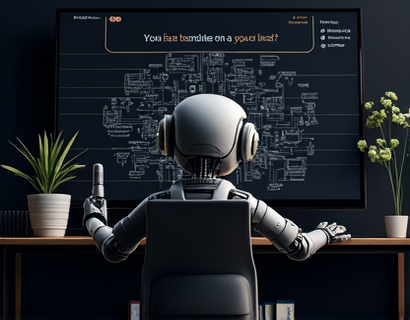Smart Home Elevation: Unveiling the Latest Innovative Appliances for Modern Living
In the rapidly evolving landscape of home technology, the concept of smart home elevation has emerged as a transformative force, redefining the way we live and interact with our living spaces. This article delves into the latest innovations in smart appliances, highlighting how these cutting-edge devices are not just enhancing convenience but also elevating the overall quality of life. From seamless integration into existing home environments to unprecedented levels of efficiency and control, these appliances are set to revolutionize modern living.
The journey towards a smarter home begins with understanding the core principles behind smart appliances. These devices are equipped with advanced sensors, connectivity options, and intuitive interfaces that allow for remote control and automation. The integration of artificial intelligence and machine learning further enhances their capabilities, enabling them to learn from user behavior and adapt to individual preferences. This synergy of technology and design ensures that smart appliances not only perform their primary functions efficiently but also become an integral part of the home's ecosystem.
One of the most significant advantages of smart home elevation is the enhancement of energy efficiency. Modern smart appliances are designed to optimize energy consumption, reducing waste and lowering utility bills. For instance, smart thermostats can learn your temperature preferences and adjust heating and cooling schedules accordingly, ensuring that energy is used only when needed. Similarly, smart lighting systems can automatically turn off lights in unoccupied rooms or adjust brightness based on natural light availability, contributing to a more sustainable living environment.
Another area where smart appliances have made substantial improvements is in home security. Gone are the days of relying solely on traditional locks and alarm systems. Today, smart locks can be controlled remotely via smartphones, providing peace of mind whether you're at home or away. These locks can also grant temporary access to guests or service providers, streamlining the process of managing who enters your home. Additionally, smart security cameras with advanced features like motion detection and night vision offer comprehensive surveillance, enhancing the overall safety of the home.
The kitchen is often considered the heart of the home, and smart appliances have transformed this space into a hub of innovation. Smart refrigerators, for example, go beyond basic temperature control. Equipped with built-in cameras, these appliances allow you to check the contents of your fridge from anywhere, reducing food waste and making grocery shopping more efficient. Some models even suggest recipes based on the ingredients you have on hand, making meal planning a breeze. Smart ovens and stoves offer precise temperature control and cooking modes, ensuring that your dishes are cooked to perfection every time.
Moving to the living room, smart entertainment systems have redefined the way we enjoy media. Smart TVs with integrated streaming services and voice control capabilities provide an immersive viewing experience. These TVs can be controlled using smart speakers or mobile apps, eliminating the need for multiple remotes. Sound systems have also evolved, with smart speakers and soundbars offering high-quality audio that adapts to the room's acoustics. These devices can be seamlessly integrated with other smart home systems, creating a cohesive and enjoyable entertainment environment.
The bedroom is another space where smart appliances are making a significant impact. Smart beds and mattresses equipped with sensors can monitor sleep patterns, providing insights into sleep quality and suggesting improvements. Some models even adjust firmness and temperature to optimize comfort. Smart lighting systems in the bedroom can simulate sunrise and sunset, helping to regulate your circadian rhythm and improve sleep quality. Additionally, smart air purifiers and humidifiers ensure a healthy and comfortable sleeping environment by maintaining optimal air quality.
For homeowners who value convenience and ease of use, voice-activated assistants have become indispensable. Devices like smart speakers can control various smart appliances throughout the home with simple voice commands. This hands-free operation is particularly beneficial for individuals with mobility issues or those who prefer a more hands-free lifestyle. Voice assistants can also provide information on weather, news, and calendar events, making them a central hub for daily information.
Water management is another critical aspect of smart home elevation. Smart water meters and leak detection systems can monitor water usage and alert homeowners to potential leaks, preventing costly damage and conserving this vital resource. These systems can integrate with smart irrigation controllers, ensuring that gardens and lawns receive the right amount of water based on weather conditions and soil moisture levels. This not only saves water but also promotes healthier plants.
The integration of smart home technology extends to outdoor spaces as well. Smart irrigation systems, as mentioned, optimize water usage for landscaping. Outdoor lighting systems with motion sensors and timers enhance security and create a welcoming atmosphere. Smart garden tools, such as automated plant waterers and soil moisture sensors, make gardening more accessible and efficient, allowing even the busiest homeowners to maintain a thriving garden.
As the smart home ecosystem continues to grow, interoperability between different devices and platforms becomes increasingly important. Standards like Zigbee, Z-Wave, and Bluetooth ensure that appliances from various manufacturers can work together seamlessly. This compatibility allows homeowners to create a cohesive smart home environment without being tied to a single brand or ecosystem. The ability to control multiple devices through a single interface or voice assistant further enhances the user experience, making smart home management intuitive and user-friendly.
The market for smart appliances is rapidly expanding, with new innovations emerging regularly. One area of focus is the development of more energy-efficient devices that not only save money but also reduce environmental impact. Manufacturers are also prioritizing durability and ease of maintenance, ensuring that smart appliances remain reliable and cost-effective over their lifespan. Additionally, there is a growing emphasis on privacy and security, with devices incorporating advanced encryption and data protection measures to safeguard user information.
For tech-savvy homeowners, the allure of smart home elevation lies in the potential for customization and automation. Smart home hubs and comprehensive control systems allow users to create personalized scenes and routines, automating multiple devices with a single command. For example, a "goodnight" routine can lock all doors, turn off lights, and adjust the thermostat with a single voice command, streamlining the evening wind-down process. These systems can also be programmed to adapt to different scenarios, such as hosting guests or going on vacation, providing flexibility and convenience.
Despite the numerous benefits, it's essential to consider the challenges and considerations when embarking on a smart home journey. Initial setup can be complex, requiring some technical knowledge to ensure devices are properly integrated. However, many manufacturers offer user-friendly setup guides and customer support to facilitate this process. Privacy concerns are also valid, and it's crucial to choose devices from reputable brands that prioritize user data protection. Gradual integration, starting with a few key devices, can help manage the transition and build confidence in the smart home ecosystem.
In conclusion, the advent of smart home elevation represents a significant leap forward in modern living. By embracing the latest innovations in smart appliances, homeowners can enjoy a more efficient, secure, and comfortable living environment. From energy-saving features to advanced security and seamless entertainment, these devices are not just gadgets but essential components of a smarter, more connected home. As technology continues to advance, the potential for further enhancements is vast, promising a future where the boundaries between technology and daily life blur, creating a truly elevated living experience.










































